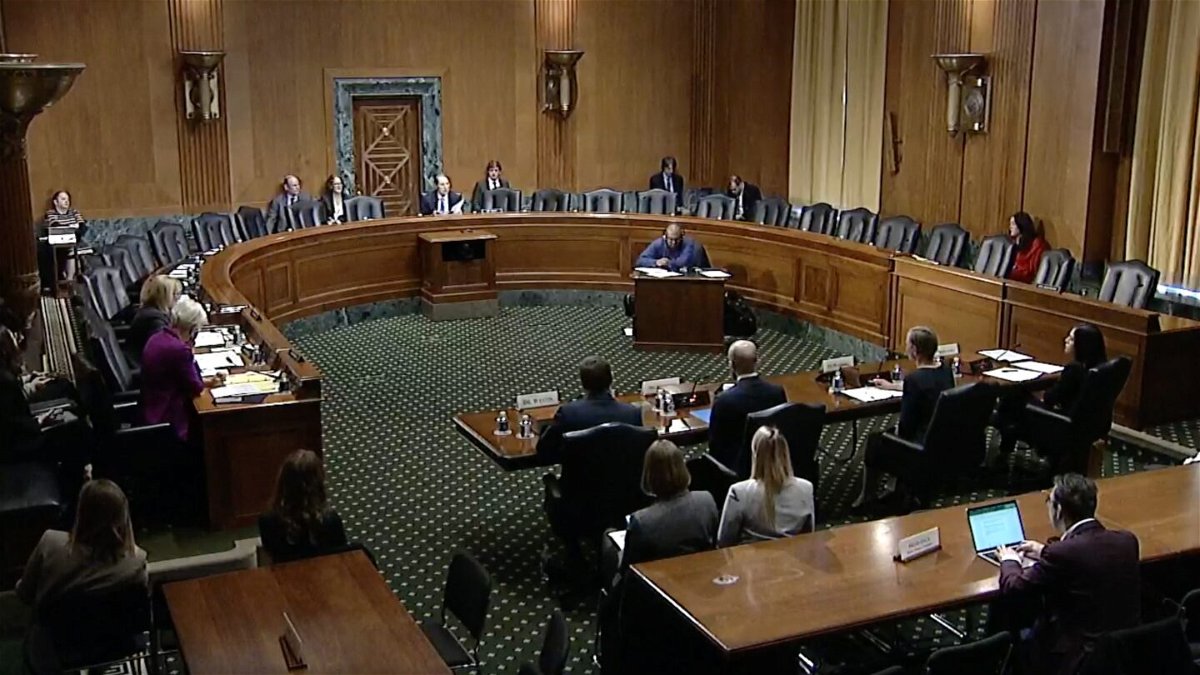US drug shortages are forcing ‘impossible choices’ for Americans, experts tell Senate committee

US drug shortages are forcing 'impossible choices' that threaten 'massive populations of Americans'
(CNN) — As director of the Lymphoma Clinical Research program at M.D. Anderson Cancer Center in Houston, Dr. Jason Westin regularly witnesses the power of lifesaving cancer drugs. But because generic cancer drugs are often in shortage in the United States, he says, he and his patients have been put in a terrible position.
“The absence of a generic and cheap drug like fludarabine literally can be the difference between life and death,” Westin told members of the US Senate Committee on Finance at a hearing Tuesday.
The committee has been investigating a record shortage of drugs, a problem that’s been going on for decades and is unique to the United States, studies show
Several senators said they’d heard from constituents who are sick or who have patients hurt by these shortages. Sen. Marsha Blackburn noted that the medical center at Vanderbilt in Nashville has had to dedicate more than 100 staff members to managing and mitigating disruptions caused by shortages.
“This is something that is becoming all too common with our providers,” the Tennessee Republican said Tuesday.
The majority of the nearly 200 ongoing shortages – 84% – don’t involve new or novel drugs but rather generics that have been on the market for decades, said Sen. Mike Crapo, R-Idaho. Generics make up 9 of every 10 prescriptions filled in the US, so shortages have a big impact on the country’s health.
“These shortages can inflict drastic harm on massive populations of Americans,” Crapo said. “The average shortage affects at least half a million consumers, forcing them to scramble for viable alternatives or they’ll forgo treatment entirely.”
Many of these generics treat cancer. Fludarabine, a reliable drug used as a part of CAR T-cell therapy, is in shortage now, according to the US Food and Drug Administration. As with a lot of generic drugs used to treat cancer, it has been on and off the list for a few years.
For Westin and his colleagues, patients with rapidly progressing aggressive blood cancers don’t have time to wait for a drug to come back in stock. There’s only a narrow window in which they are well enough to get a potentially lifesaving CAR T-cell therapy, something that works only with fludarabine. There is no alternative, Westin told the committee.
“My colleagues have been forced to make impossible choices, including to choose which patients will be prioritized to receive potentially curative therapy,” he said.
“We know how to treat cancer, but shortages force impossible choices,” he added. “We have drugs that are lifesaving and shortages that are life-threatening.”
A large part of the problem with generics is that they have razor-thin margins and little profit to show for them, so companies often aren’t interested in making them. The number of companies exiting the market to make these drugs exceeds the rate of those entering the market by upwards of 40%, Crapo said.
Much of generic manufacturing gets outsourced to other countries like China and India, which can present geopolitical problems as well as quality-control issues, noted Dr. Inmaculada Hernandez, a professor in the Division of Clinical Pharmacy at the Skaggs School of Pharmacy and Pharmaceutical Sciences at the University of California in San Diego.
“We have a drug supply chain that heavily relies on foreign manufacturing. This is a national public health risk,” Hernandez told the committee.
One solution would be for the government to use value-based payments to incentivize large buyers of generics like pharmacies and hospital systems to purchase medicine from manufacturers with more dependable supply chains, she said.
Makers of generic drugs don’t have to share information about the supply chain, so buyers currently choose based only on price.
To truly end shortages, the Centers for Medicare & Medicaid Services, the nation’s largest purchaser of drugs, would have to be able to buy based on manufacturing quality and reliability, not just on price, said Dr. Marta E. Wosińska, an economist and senior fellow at the Brookings Institution.
“If we start rewarding reliability, manufacturers can maintain actually a higher price point because it’s rewarded, that reliability. Then there’s going to be an incentive that will follow,” Wosińska testified Tuesday.
In other words, more companies would get into the generics business.
Another problem the government would have to overcome, experts testified, is the consolidation of generic drug purchasing among a “small group of very powerful health care middle men,” said Sen. Ron Wyden, D-Oregon. Although there is money to be made in generics, it’s going to these middle men – drug wholesalers and pharmacy benefit managers or PBMs – rather than to manufacturers.
“There are many companies that manufacture generics, but they must compete for the attention of highly consolidated middle men,” Wyden said. Three drug wholesalers control 90% of the nation’s pharmaceutical market, he said.
“The generic manufacturers that are awarded contracts by these middle men do so by offering penny-on-the-dollar prices,” Wyden said.
Offered such low prices, companies don’t earn enough to invest in capacity or in equipment that’s key to making reliable high-quality medicines.
“So you have, in effect, a race to the bottom price for generics that leads to quality control problems and factory shutdowns,” Wyden said.
These “middle men” have also received criticism for driving up drug prices. In a study published Tuesday in the journal JAMA, Hernandez and her co-authors say that PBMs often pay pharmacies “unjustified excessive amounts for generics, as high as 10 times acquisition costs,” which the PBMs then recover through clawbacks rather than passing on to customers.
Hernandez told the Senate committee that of the top 50 generic drugs paid for by Medicare Part D, 16 were marked up 1,000% or higher. For aripiprazole, an antipsychotic drug, pharmacies paid an average of 17 cents per tablet; Rite Aid’s pharmacy benefit manager paid $11.70 per tablet, a 7,000% markup.
“So they end up paying much more than, actually, the pharmacy paid for the drug, let alone the manufacturer got for it,” Hernandez said.
Hernandez said she recommends greater oversight of PBMs. Legislation currently before the Senate would make it illegal for PBMs to engage in “spread pricing,” in which companies charge payers and health plans more for a prescription drug than what they reimburse the pharmacy, and the PBM pockets the difference.
Until there is some kind of legislation that addresses drug shortages, Wosińska and the other experts agreed, they will continue.
“What is vexing about these shortages is that they’re largely avoidable,” Wosińska said.
The-CNN-Wire
™ & © 2023 Cable News Network, Inc., a Warner Bros. Discovery Company. All rights reserved.

